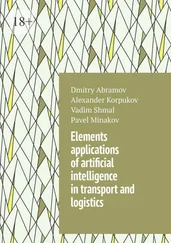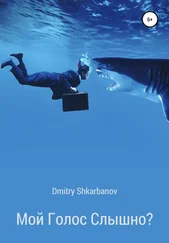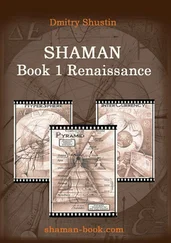He had to struggle to force the words out, he didn’t want to let them out for a long time – he was ashamed of screaming like a woman. He wanted to make excuses – and he knew there couldn’t be any excuses. Homer shook his head.
‘Drop it. I pissed my pants, and it’s not bothering me any. Come on, we must be almost there now.’
The pursuit had been called off, they could get their breath back. They couldn’t run any longer in any case, and they wandered along, clutching at the walls as blindly as ever. Advancing towards deliverance step by step. The worst of the terror was behind them, and although the murk was still not receding, sooner or later the predatory draughts of the tunnels would bite into it, shred it and drag the shreds into the ventilation shafts. Sooner or later they would reach a place where there were people and wait there for their delayed commander.
It happened sooner than they could possibly have hoped – maybe because time and space were both distorted in the fog. A cast-iron ladder appeared, running up the wall onto a platform, the round cross-section of the tunnel gave way to a right-angled one and a hollow appeared between the rails – a safe refuge for passengers who fell onto the track.
‘Look at that,’ whispered Homer. ‘It looks like a station! A station!
‘Hey, is there anyone there?’ Ahmed yelled as loud as he could. ‘Hey lads! Is anyone there?’ he yelled, overwhelmed by senseless, triumphant laughter.
The yellowish, exhausted beams of their flashlights picked slabs of marble, gnawed away by time and people, out of the hazy gloom. Not one of the bright-coloured mosaics – the pride and joy of Nagatino – had survived. And what had become of the stone-faced columns? Could this really be…?
No one answered Ahmed, but he didn’t despair and carried on calling cheerfully: it was obvious enough, the people had taken fright at the fog and run off – but they couldn’t fool him like that! Meanwhile Homer kept searching anxiously for something on the walls, licking at them with his fading beam of light, while suspicion chilled his blood.
And then at last he found it – iron letters screwed into the cracked marble: NAGORNAYA.
Her father believed it was never accidental when people went back to a place. They returned in order to change something, in order to put something right. Sometimes, he believed, God himself takes us by the scruff of the neck and brings us back to the spot where we accidentally escaped his watchful eye, in order to enforce his sentence – or give us a second chance. That was why, he explained, he would never be able to return from exile to their native station. He had no strength left to take revenge, to struggle, to prove anything. He had long ago stopped wanting anyone’s contrition or remorse. In the old story that had cost him his former life and almost ended his life completely, everyone had got what they deserved, he said. As things turned out, they had been condemned to eternal exile – Sasha’s father didn’t want to put anything right, and in any case the Lord never called into this station.
The rescue plan – to find a car that hadn’t rotted away in over two decades, repair it, fuel it and break out of the narrow circle in which fate had imprisoned them – that plan had been no more than a bedtime story for a long time already.
For Sasha there was another way back to the Greater Metro. When she went down to the bridge on the set day to exchange the clumsily repaired devices, blackened jewellery and mouldy books for food and a few cartridges, sometimes they offered her a lot more.
Training the trolley’s searchlight on her slightly angular, boyish figure, the shuttle traders winked at each other and smacked their lips, beckoning to her and shouting promises. The little girl seemed wild – she glowered at them with her head down, tensed up like a spring, concealing a long-bladed knife behind her back. The loose-fitting man’s overalls couldn’t blur the bold, clear lines of her body. The mud and engine oil on her face only made her blue eyes shine even more brightly, so brightly that some men turned their own eyes away. The white hair, artlessly trimmed with the same knife that was always clutched in her right hand, barely covered her ears, the gnawed lips never smiled.
Soon realising that petty gifts were poor bait for taming a wild wolf, the men on the trolley tried to bribe her with freedom, but she never answered them even once. They decided the girl must be dumb. It was easier like that. Sasha knew perfectly well that no matter what she agreed to, she could never buy two places on the trolley. People had too many accounts for her father to settle, and they couldn’t possibly be paid.
Faceless and with adenoidal voices in their black military gas masks, they weren’t simply enemies to her – she couldn’t see anything human about them, not a single thing that could have set her dreaming, not even at night, even in her dreams.
And so she simply set the telephones, irons and kettles down on the sleepers, moved back ten steps and waited for the shuttle traders to take the goods, fling the bundles of dried pork down on the track and toss her a handful of cartridges, deliberately scattering them out of spite, so they could watch as she collected them, crawling on her hands and knees.
Then the trolley slowly sailed off into a different world and Sasha turned round and went home, where a heap of broken household appliances was waiting for her, along with a screwdriver, a soldering iron and an old bicycle converted into a generator. She mounted it, closed her eyes and hurtled away, far off into the distance, almost managing to forget that she could never move from the spot. And the fact that she had made her own decision to reject the offer of pardon lent her strength.
What the hell? How had they ended up back here? Homer feverishly racked his brains for an explanation. Ahmed suddenly shut up when he saw where Homer was shining his flashlight.
‘This station won’t let me go,’ he said in a hoarse, low voice.
The fog enveloping them had grown so thick, they could barely see each other. Nagornaya had slumbered while the men were away, but it had awoken now: the heavy air fluctuated subtly in response to their words and vague shadows stirred in its depths. And not a single sign of Hunter… There was no way a creature of flesh and blood could win a battle against phantoms. As soon as the station was weary of toying with them, it had shrouded them in its acrid breath and swallowed them alive.
‘You go,’ Ahmed gasped despairingly. ‘I’m the one it wants. You don’t know, you almost never come here.’
‘Stop talking drivel!’ the old man snapped, surprising even himself with the loudness of his voice. ‘We just lost our way in the fog. Let’s go back!’
‘We can’t leave. Run as hard as you like, you’ll end up back here, if you’re with me. You can break out on your own. Please, go.’
‘Stop it, that’s enough!’ Homer grabbed hold of Ahmed’s wrist and dragged him towards the tunnel. ‘You’ll thank me for this in an hour!’
‘Tell my Gulya…’ Ahmed began.
An incredible, monstrously powerful force tore his hand out of Homer’s hand, jerking it upwards into the fog, into extinction. He had no time to cry out, he simply disappeared, as if he had instantaneously disintegrated into atoms, as if he had never existed. The old man screamed and howled for him, spinning round on the spot as if he’d lost his mind, wasting clip after clip of precious cartridges. Then a crushing blow that could only have been struck by one of the local demons landed on the back of his head and the universe imploded.
Sasha ran over to the window and flung the shutters wide open, letting in the fresh air and the tentative light. The wooden window ledge hung over the very edge of a bottomless precipice, filled with delicate morning mist that would disperse with the first rays of sunshine, and then the view from the window would extend beyond the gorge to the distant mountain spurs with their covering of pine trees and the green meadows extending between them, the matchbox country houses scattered across the valley and the cartridge cases of the bell towers.
Читать дальше











